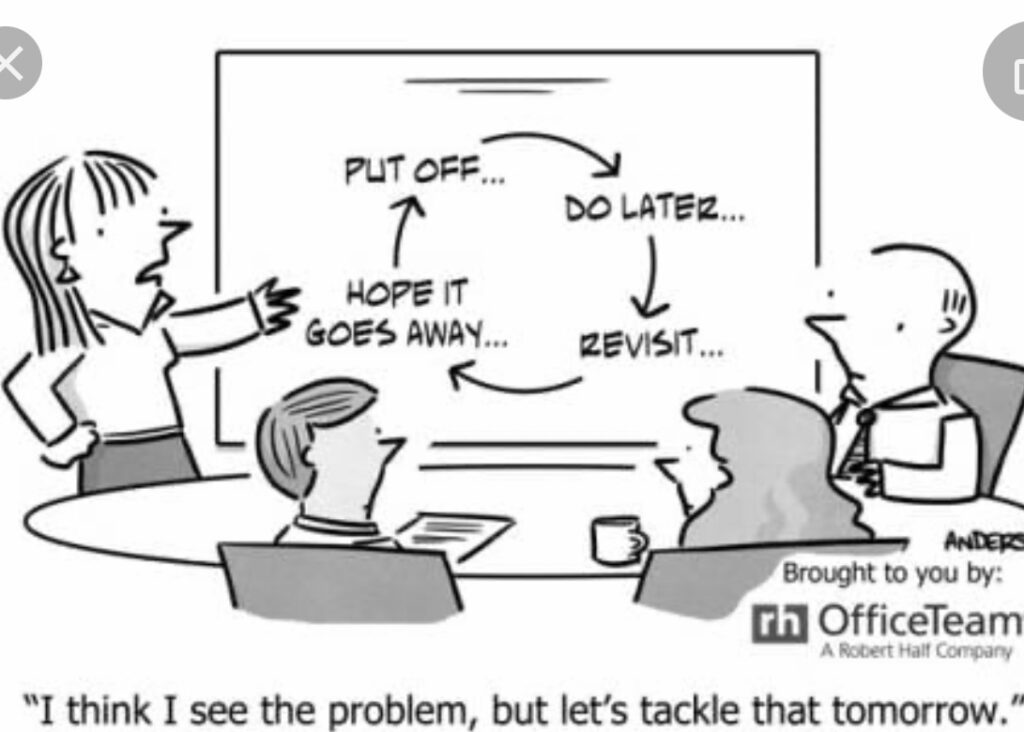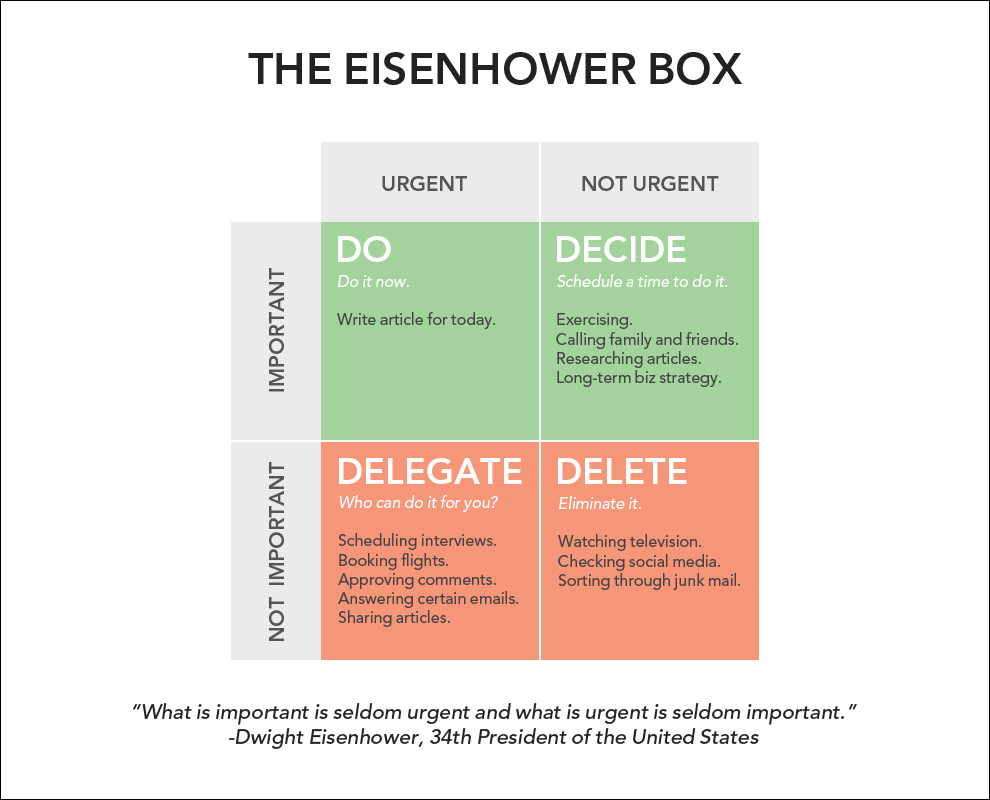As with most things, procrastinating is a leaf with two sides. There is a dark, ugly side and a bright, healthy side. We all know that procrastination can work against us. But consider that sometimes procrastination can be beneficial, even necessary.
Active Rational Procrastination
Purposeful delay is rational procrastination. For example, you might delay starting a task because the deadline is far away, the task might be cancelled before then AND the delay won’t lead to any consequences; That is rational procrastination. There was lots of logical and rational procrastination the last couple of years when COVID was canceling plans left and right.
Procrastination can give you more time to think before acting. This can be especially beneficial when you should cool off before doing something you will regret during an emotionally charged situation. Also it can sometimes help you make better decisions by giving you more time to gather information or confirm facts.
Active procrastinators are people who prefer to work under pressure. They purposefully delay work. This tends to build up pressure to produce results. These people make deliberate decisions to procrastinate. For these folks, though they might not be getting the thing that you’re procrastinating on done first, the rest of their to-do list is probably getting cleared quickly. All that is left on that list is the one thing they were originally putting off. Eventually they are “under the gun” and end up working under the pressure they thrive in.
“Active procrastination means you choose to delay working on a task because you like to work under pressure and that lets you perform better. Passive procrastinators are often crippled by indecision and an inability to self-regulate that gets in the way of completing a task.” Cognition Today, March 2020. Aditya Shukla

Passive Procrastination
Passive procrastination is the dark, dangerous side of the leaf. You must conquer your passive procrastination intentionally, with a purpose and a plan.
In our last article we covered several types of procrastinators. Here they are again, this time with some good ideas about how to manage them…
The Avoider
You are the person that avoids starting the project. Try to be clear about the purpose of your tasks and assign a time limit to each one. Focus on the worst or most challenging task first. Try to break down your tasks into smaller sub-tasks and make realistic calculations. This will give you a sense of achievement and help you build momentum for a productive day ahead. High-five yourself as you hit those mini-goals.
Shiny Ball
You are the person that attracted to new things to catch your interest. And things you think of as drudgery quickly bore you . In this case you have one of two options:
- Make the distracting new things seem less appealing, or
- Make the work at hand seem more appealing.
If you are quick to lose interest and pick up your phone, STOP. Put it away and out of sight. If it’s emails distracting you, turn off the alert, check them at specific times. If it’s people making you lose focus, isolate yourself or make it known you are facing a deadline.
Next, some ways to make your work more enjoyable include:
- Listening to music
- Finding a work partner you mesh well with
- Gamifying the task at hand. (For example, you could reward yourself after completing each 25-minute block, or by eating a little bit of your favorite treat.)
The Planner Planner
You are the one that jumps on task and then begins to plan. Then you replan and endlessly re-replan the plan. To keep from being carried away by your endless imagination and second-guessing, get your feet back on the ground by setting specific (and achievable) goals with action steps for each day. Then break the goal down into small actionable tasks.
The Pressure Gauge
You say, “I work well under pressure” so you are forced to have less time to tackle a task. To make this work for you (instead of against you), get your priorities straight. Urgent tasks have precedent over important tasks which come before unimportant tasks.
- “Must-do” comes first
- “Should-do” comes next
- “Want-to-do” comes last
You only have so much time and energy. Don’t waste it on things that don’t matter.

The Busy Bees
You are a pro at filling up your calendar. As a result you are often overwhelmed. In truth you have created chaos to avoid what you need to face. First take a moment of introspection to ask yourself what are you avoiding and tackle it. Next clear your decks.
Streamline your workload by doing one thing at a time rather than trying to tackling multiple tasks simultaneously. Make a list of each day’s workload and responsibilities by the hour, including an allotted time-frame for each. Time management and list apps can be helpful for structuring your day’s activities. You might still be busy, but you have a more productive path.
Managing Procrastination
Procrastination can reduce your potential and undermine your career and relationships. It adds unwanted stress and anxiety. It also affects your morale and self-esteem. And it can leave you with sleepless nights. And it can cost you your health and your career. Therefore it is important to take proactive steps manage it and head-off its disastrous consequences.
The first step is to realize you are procrastinating. Then figure out why and take steps to manage it. Realizing you have been a procrastinator does not mean you are lazy. Often, it means that you lack the confidence to proceed. Overcoming procrastination all hinges on one thing: YOU MUST BEGIN!.
“A good beginning marks a good end.”
Louis L’Amour (author of 105 books)
* Please leave a comment below. You may comment anonymously or you may use your first name. We may post or quote your comment on the website. We will never post or share your last name, email address or any other personal identifying information.
